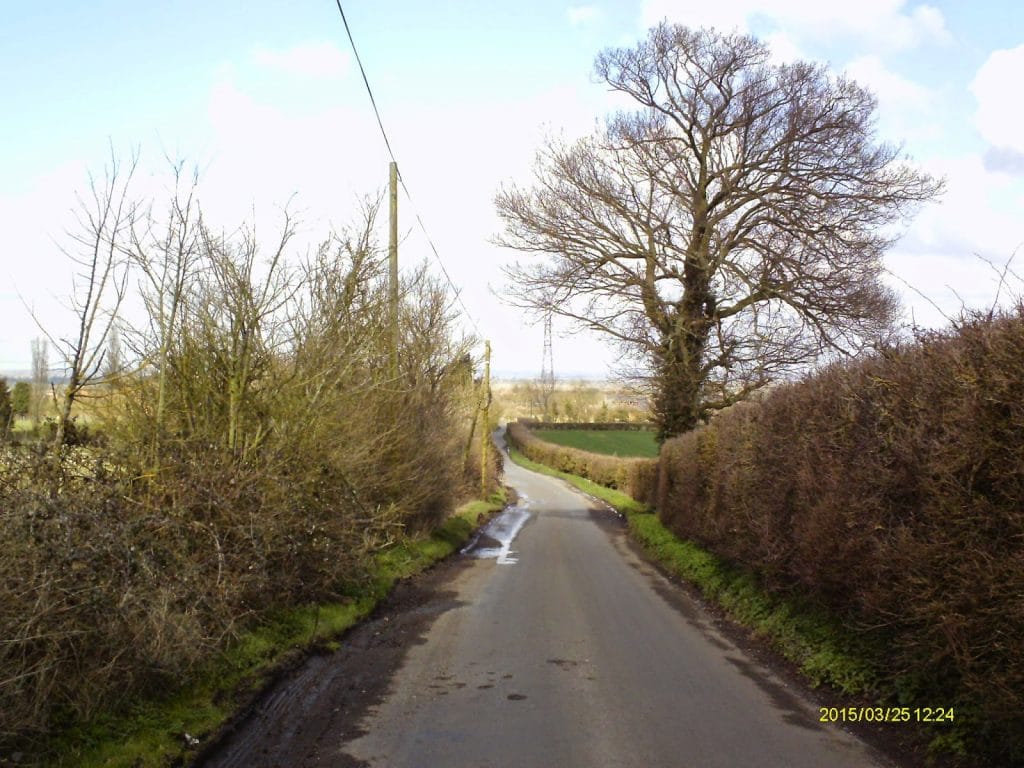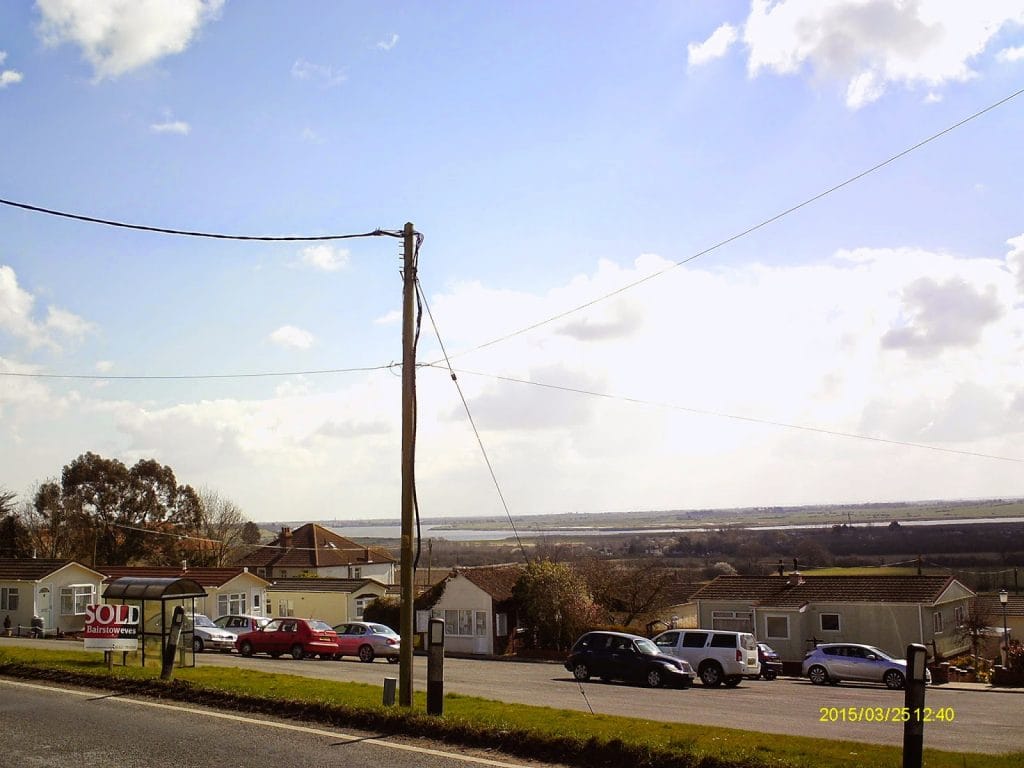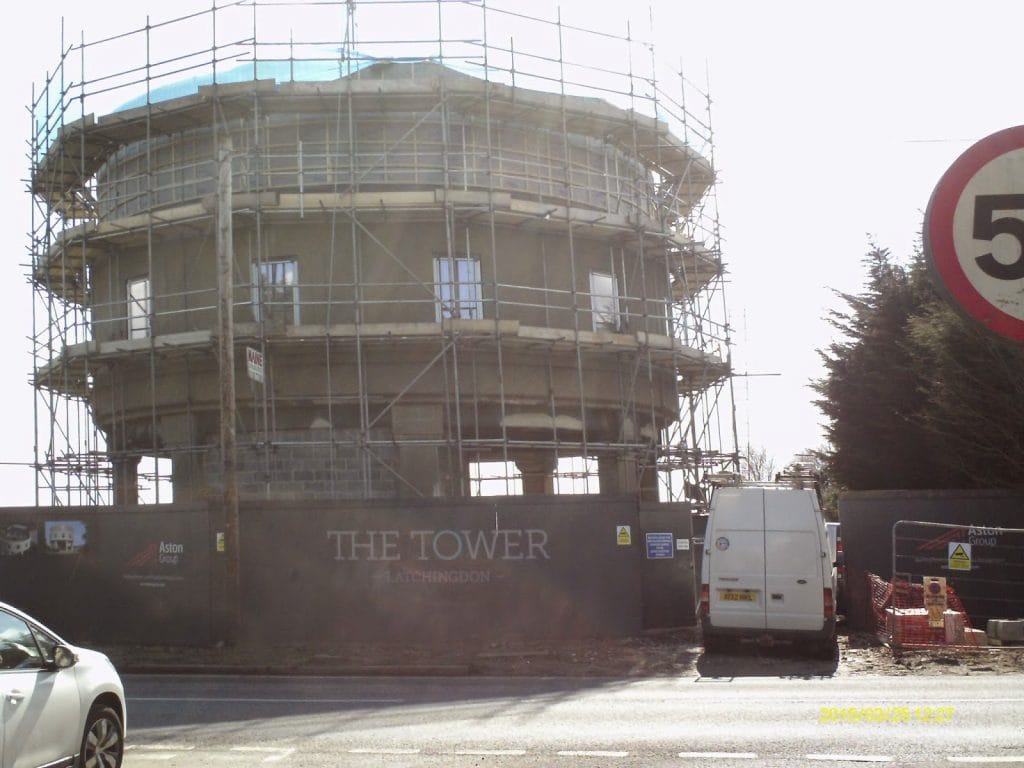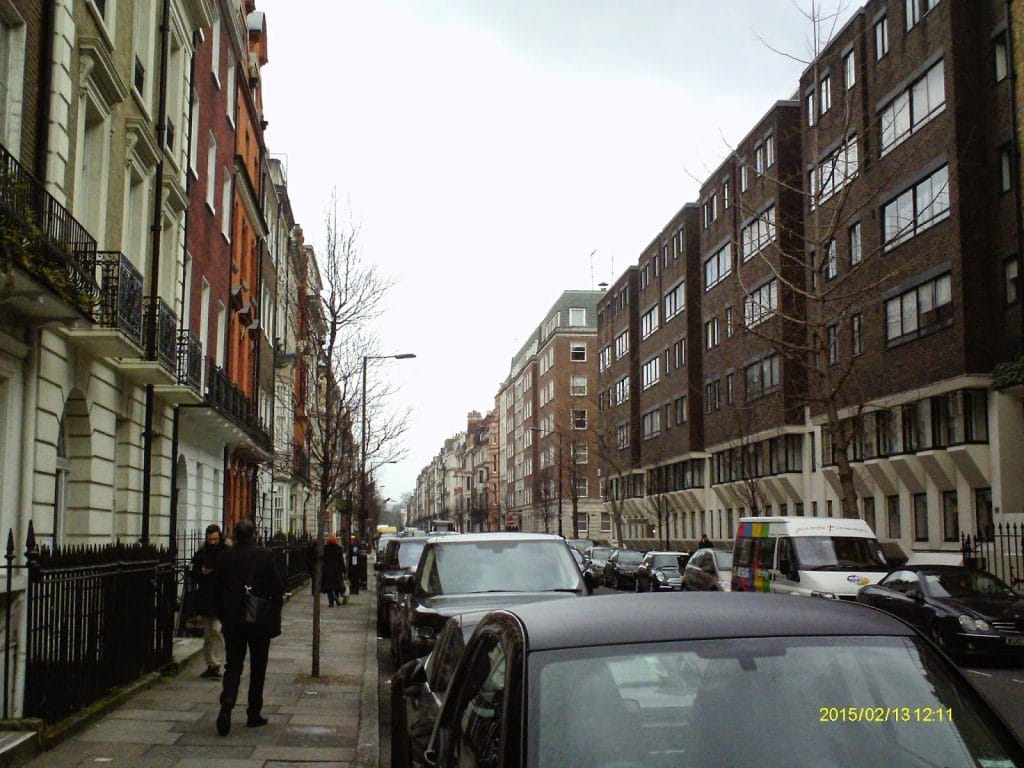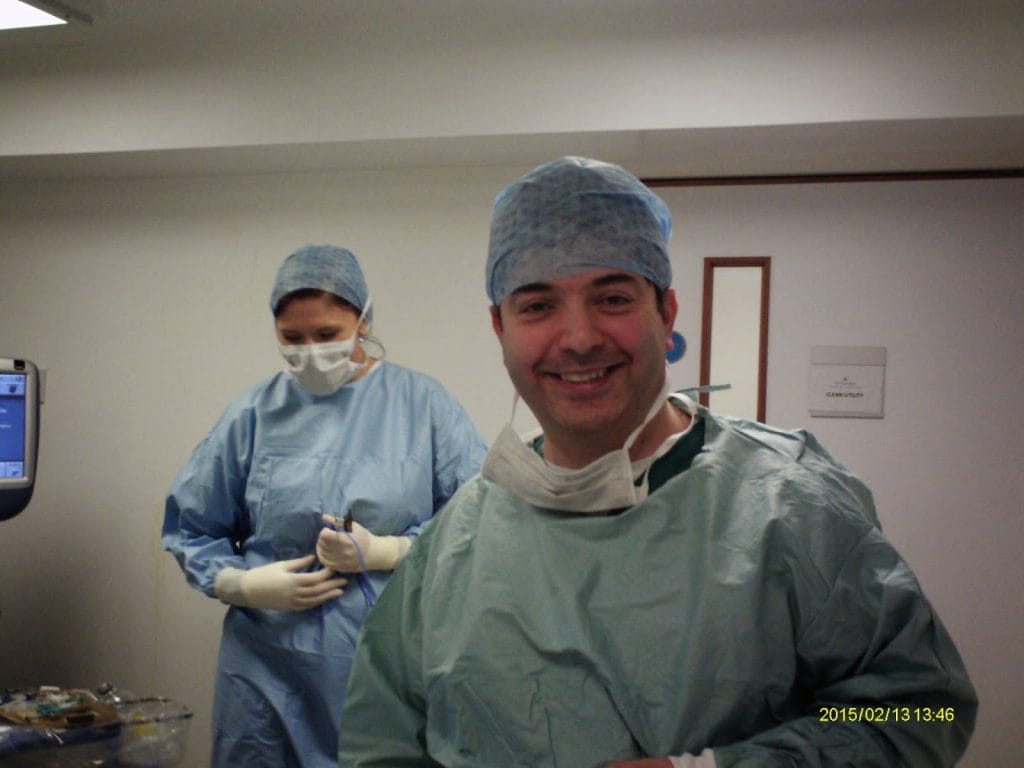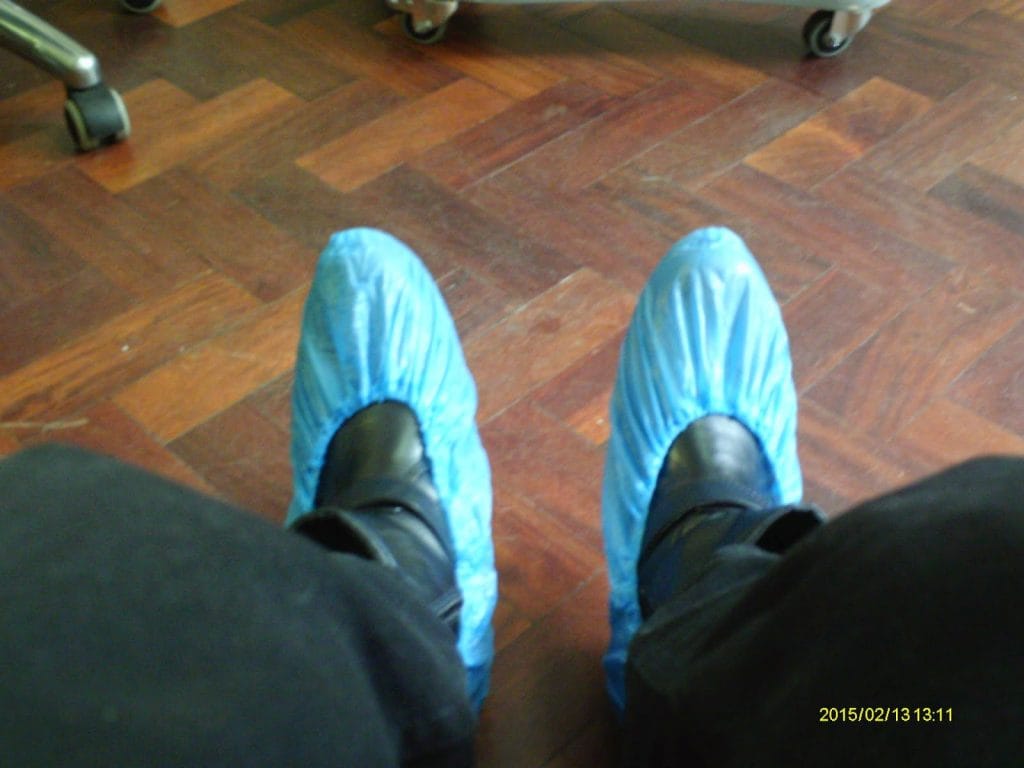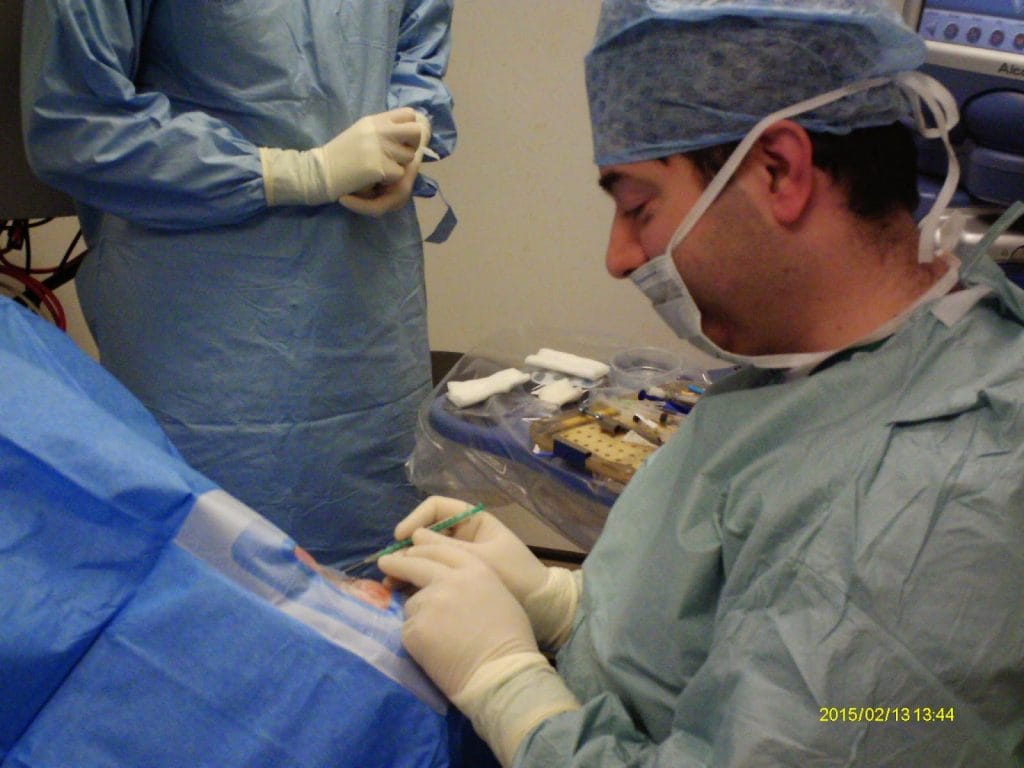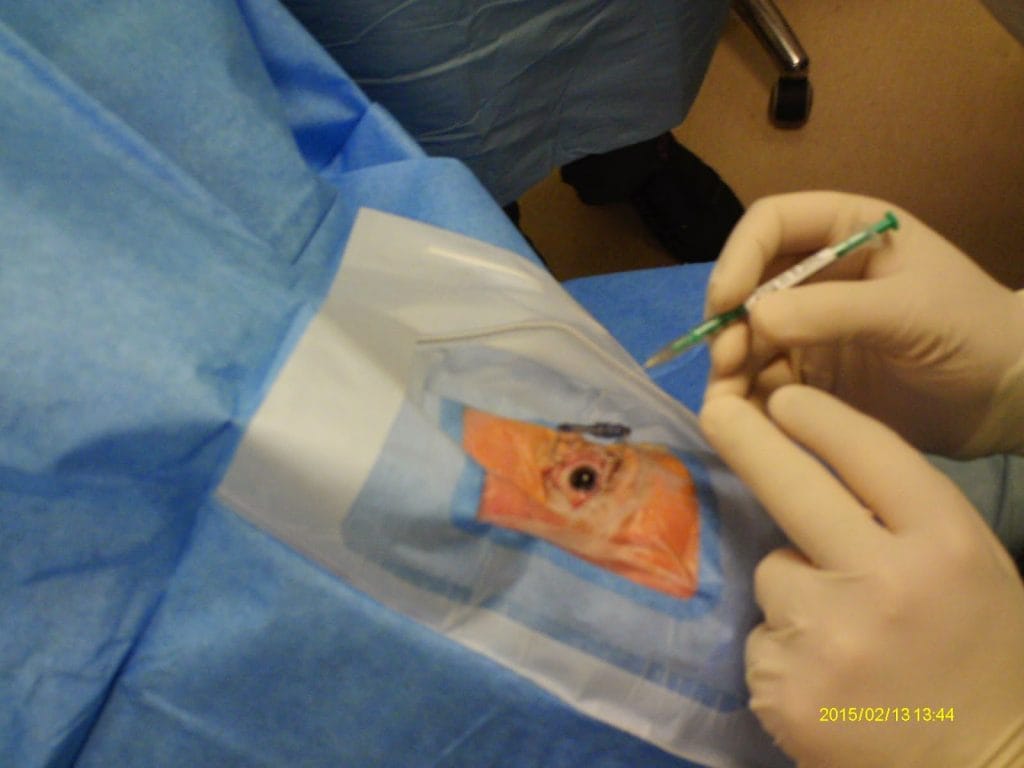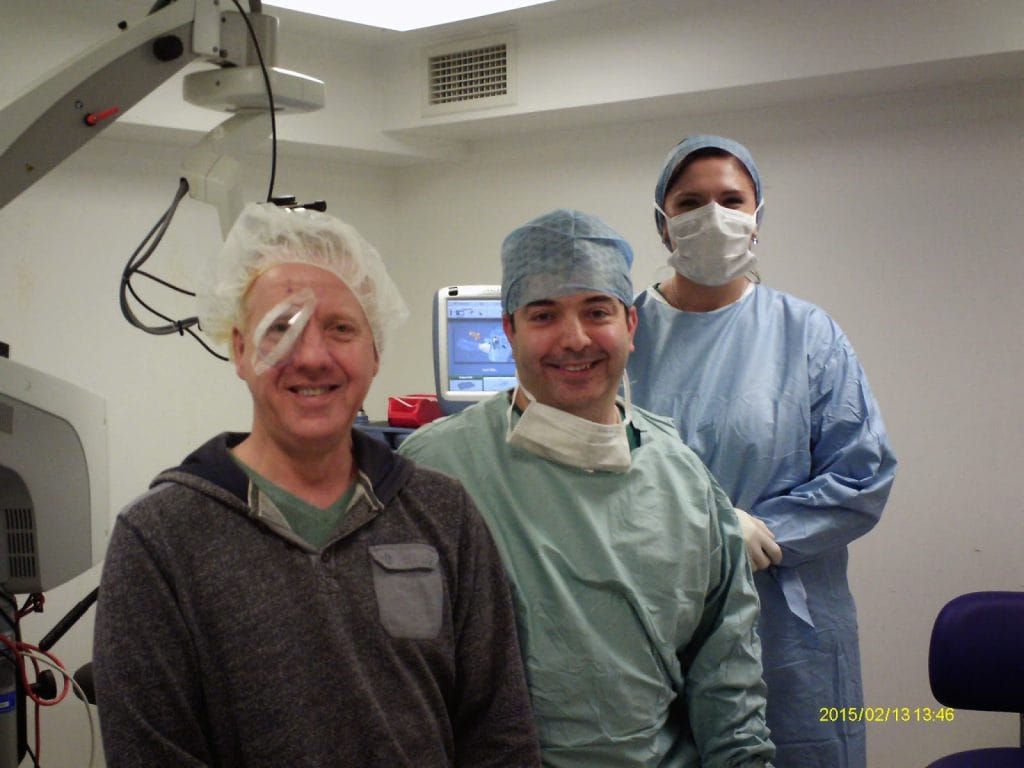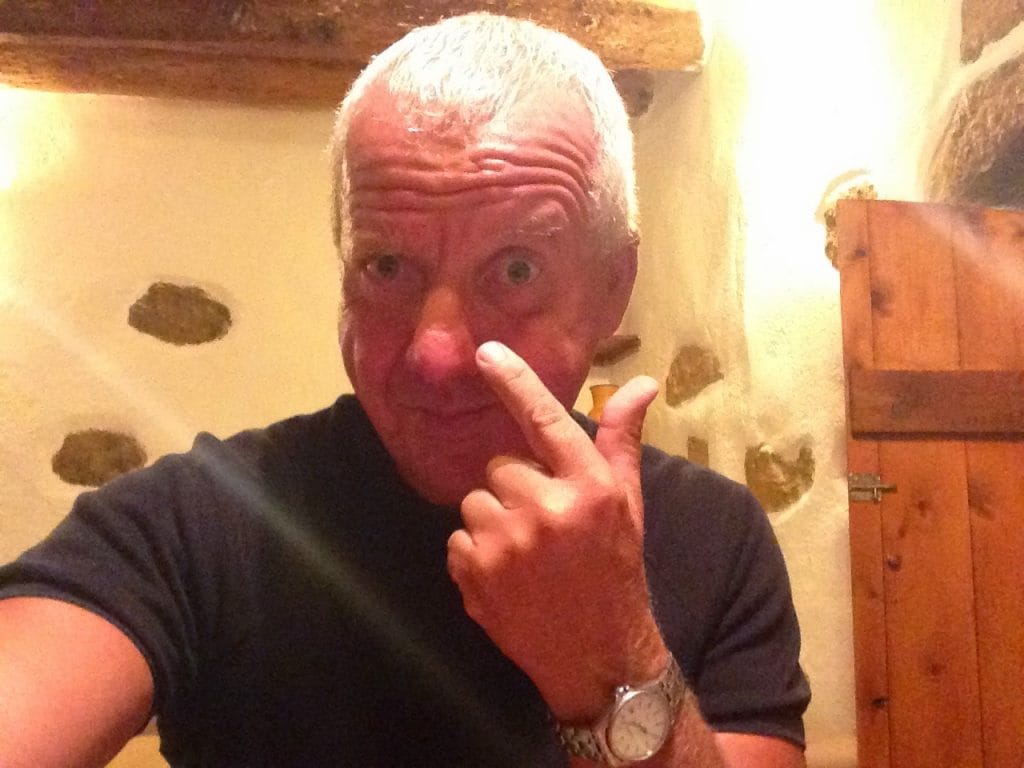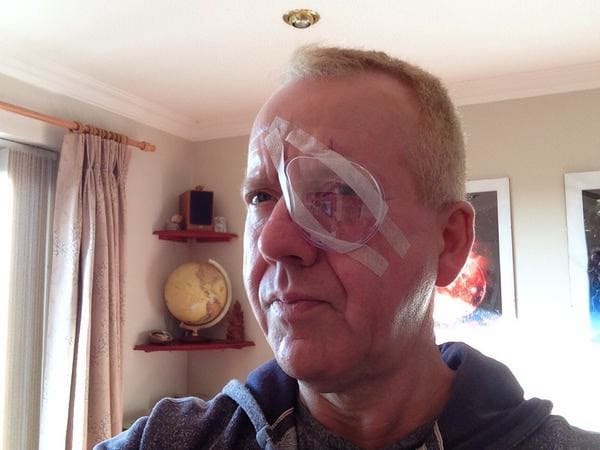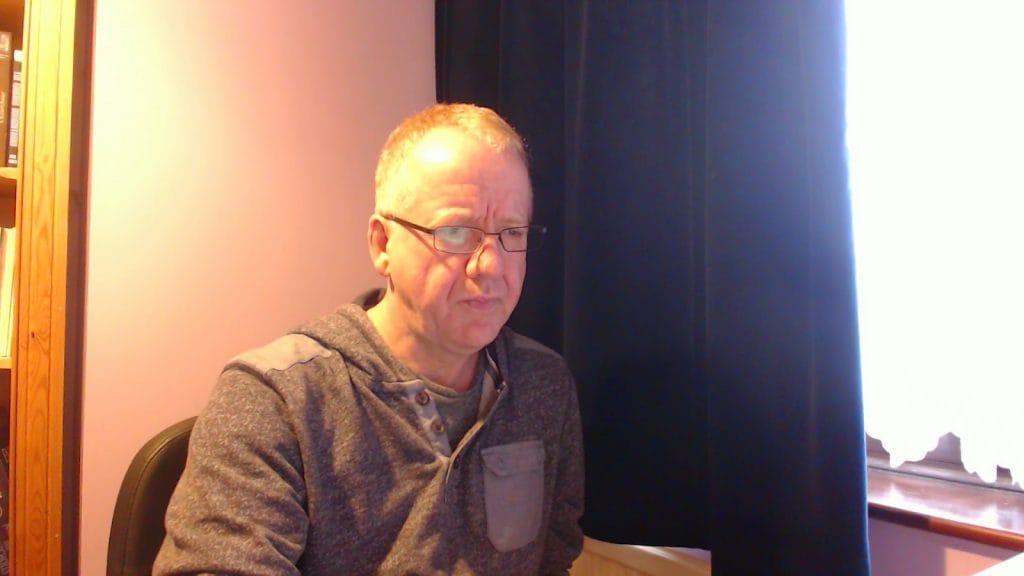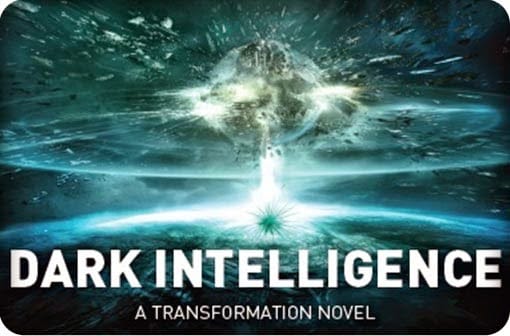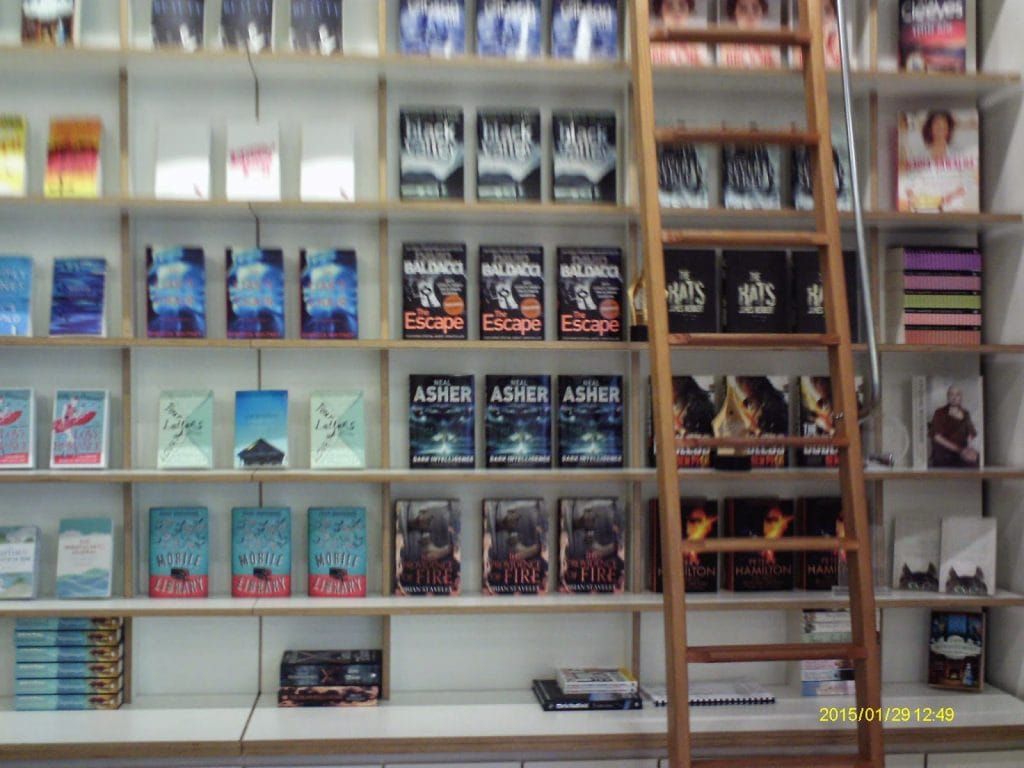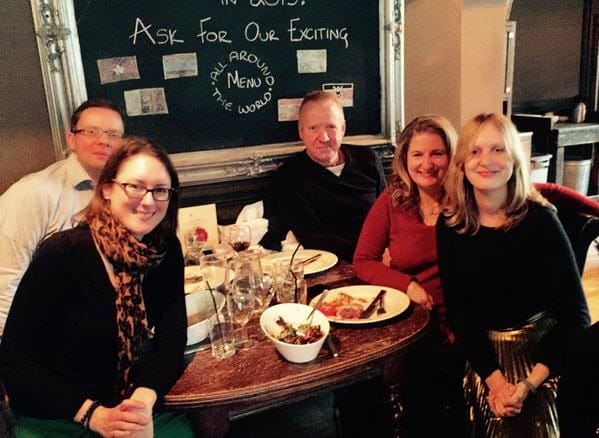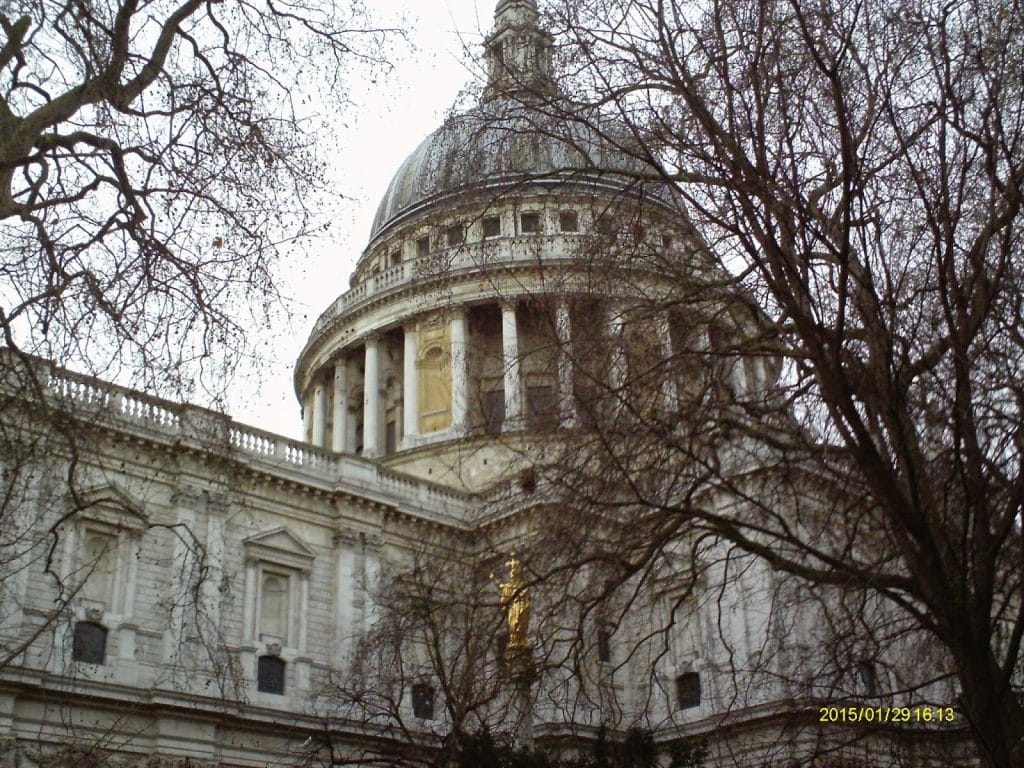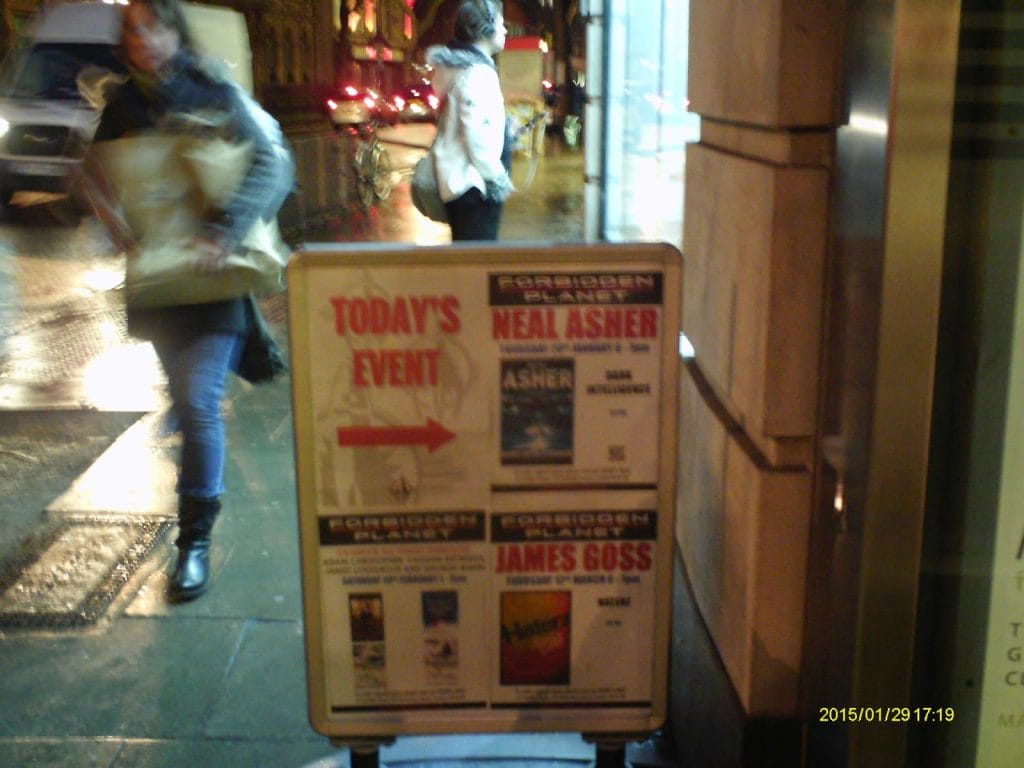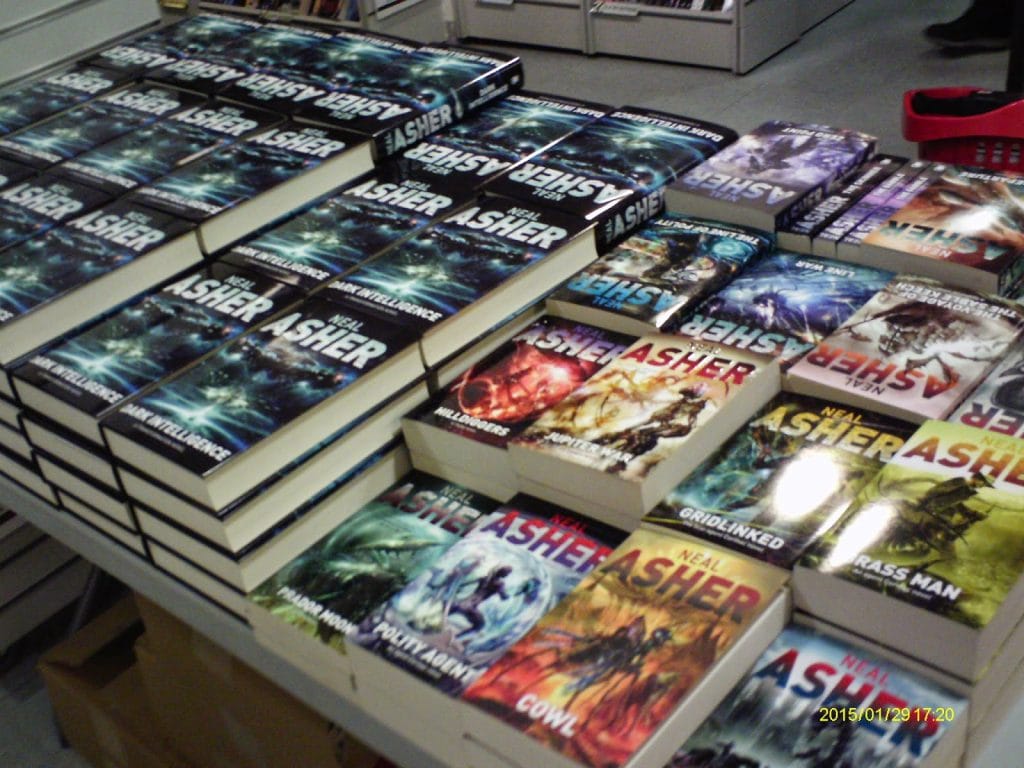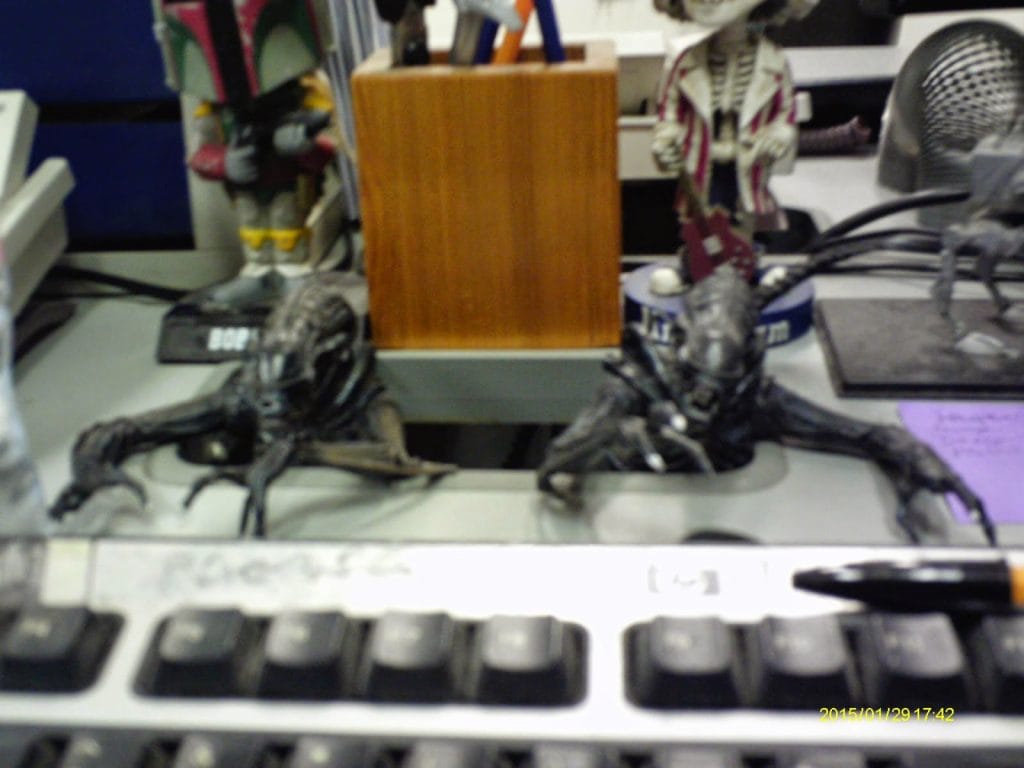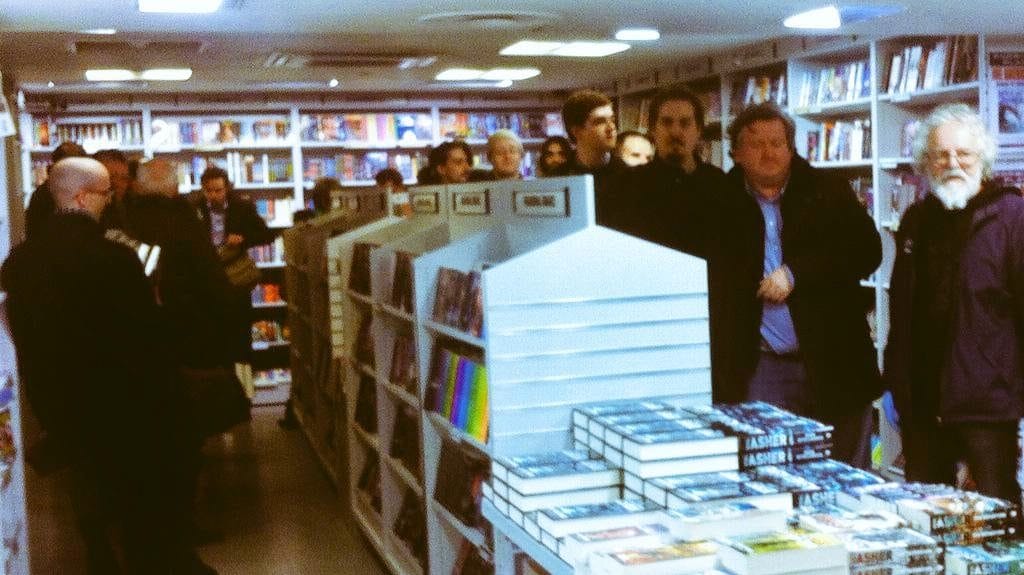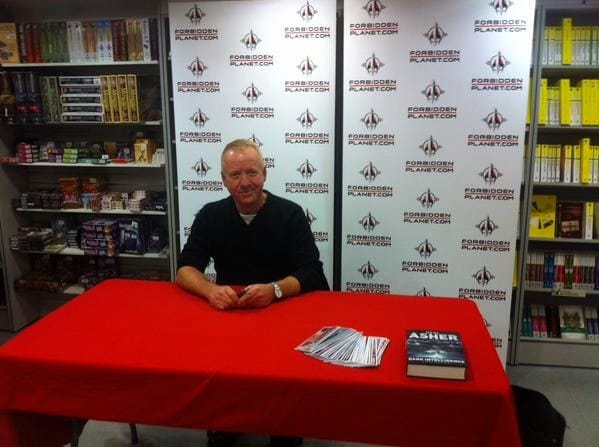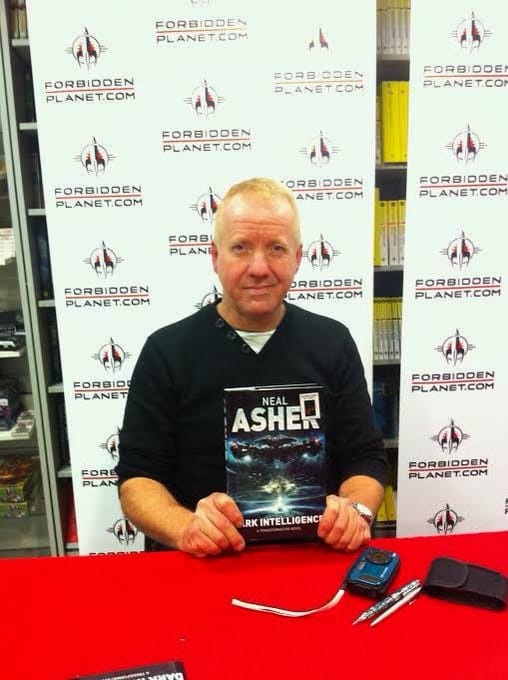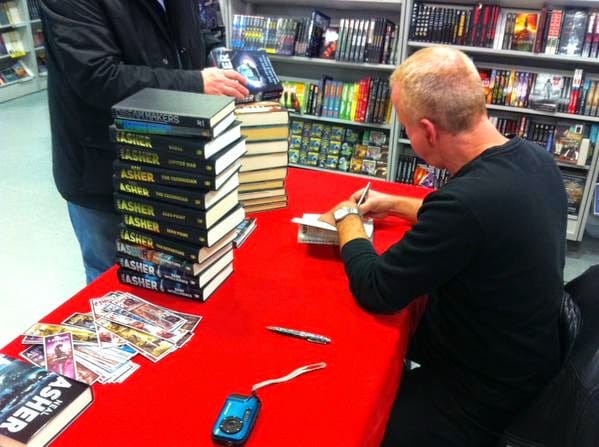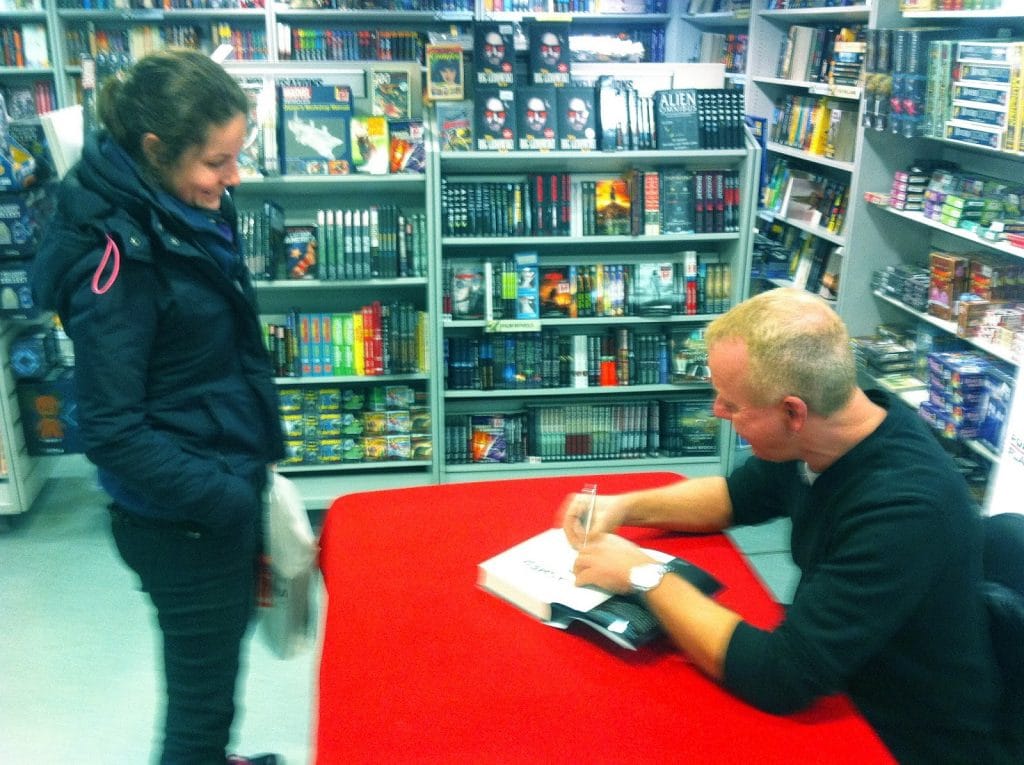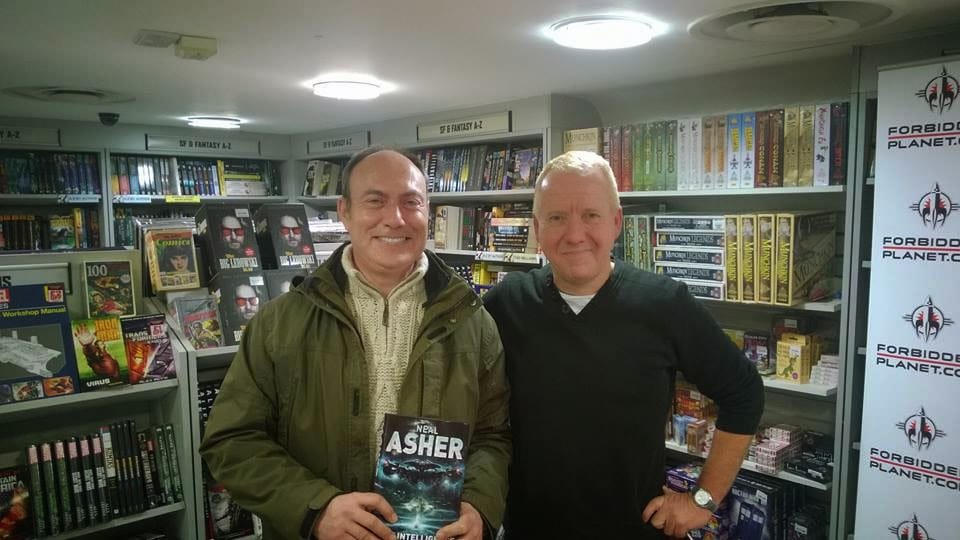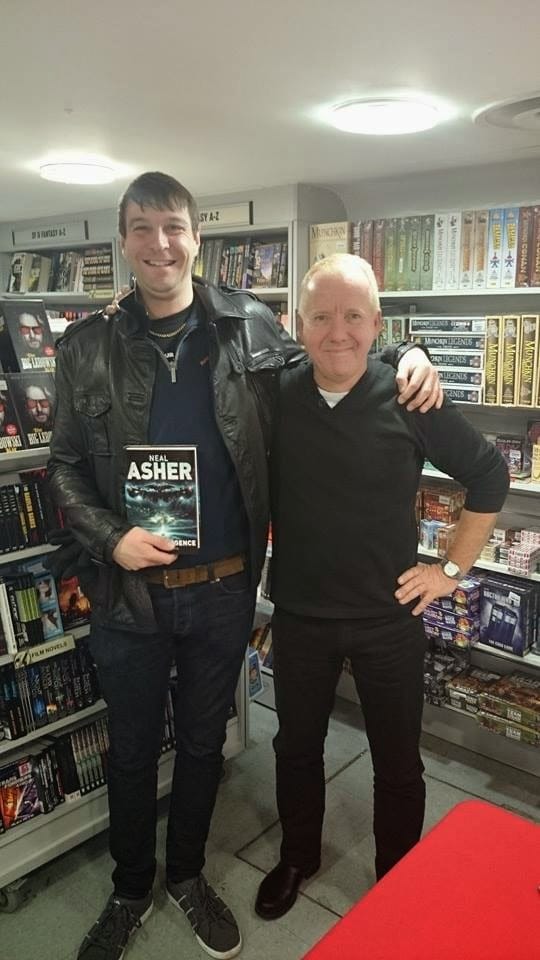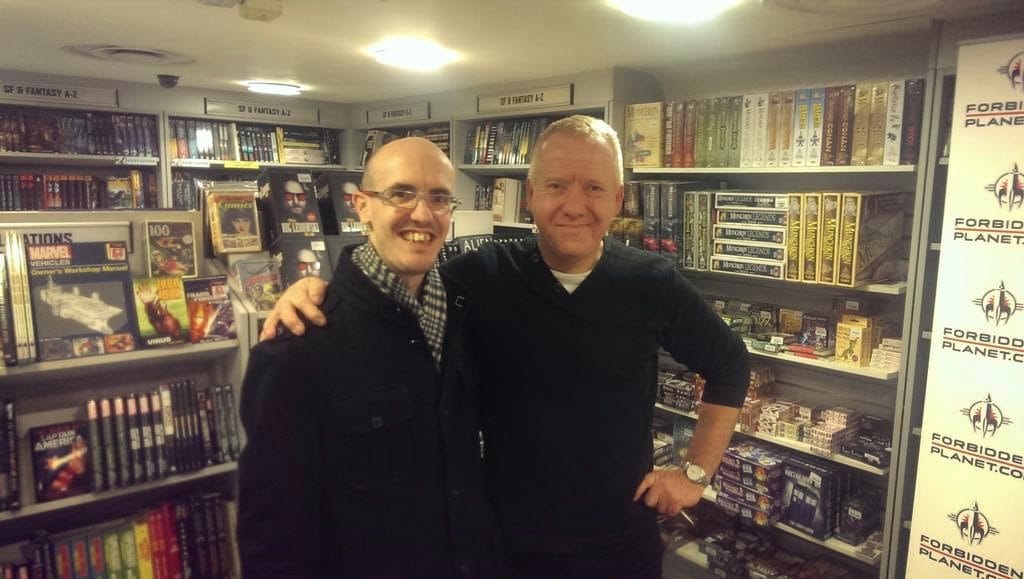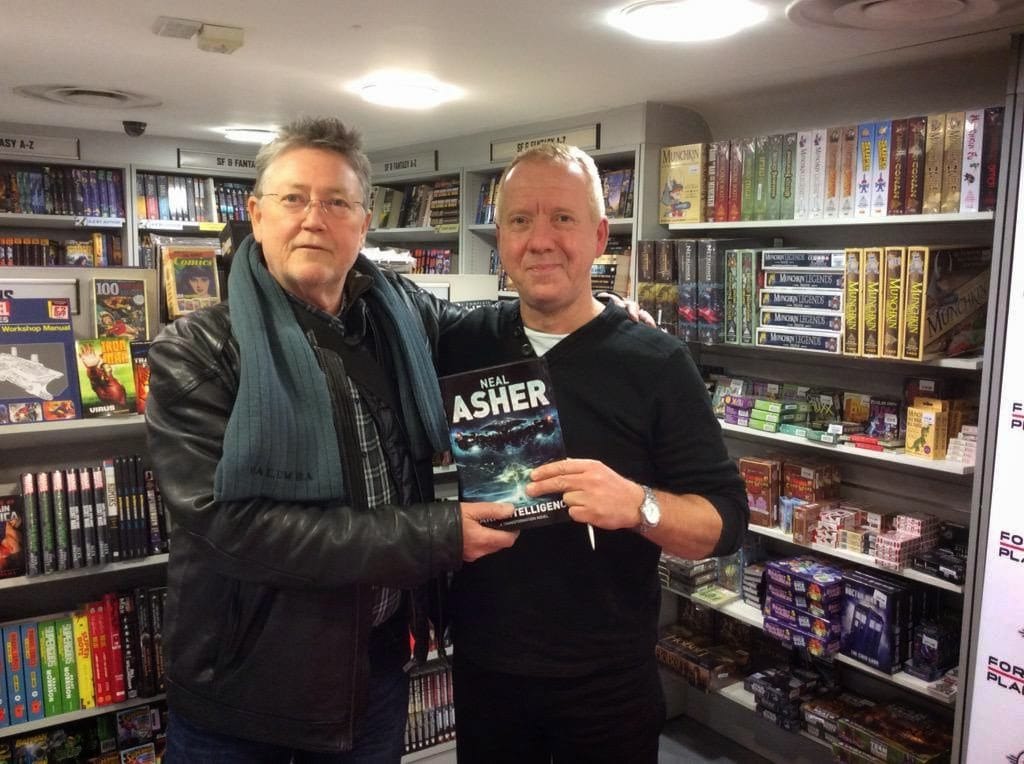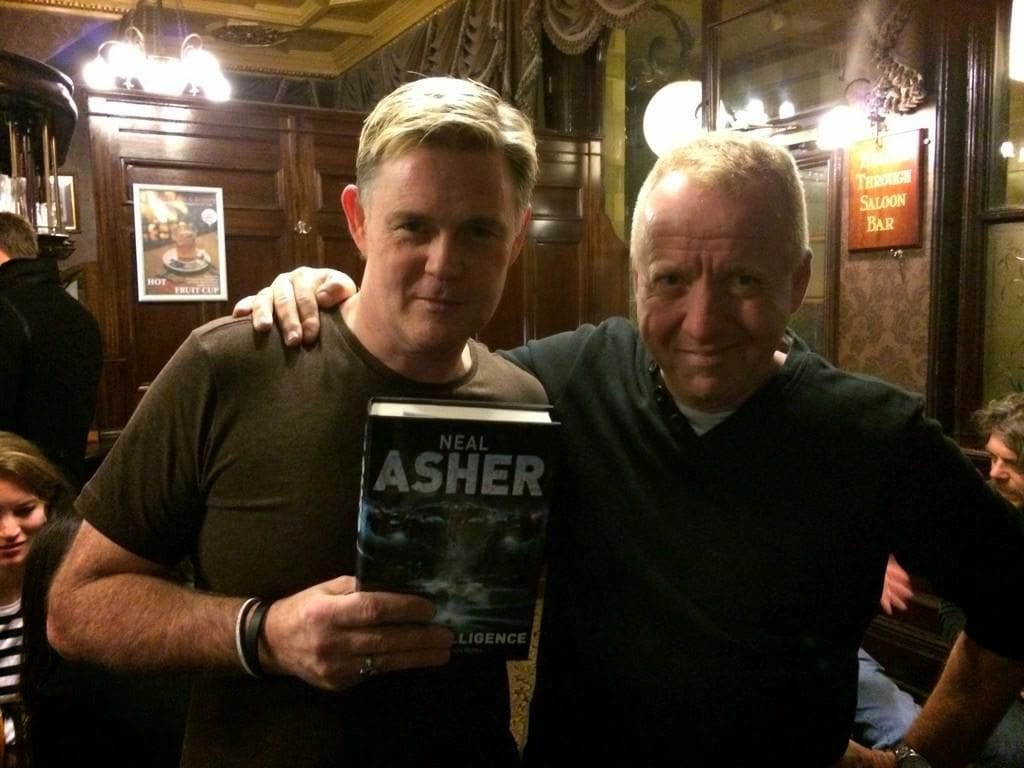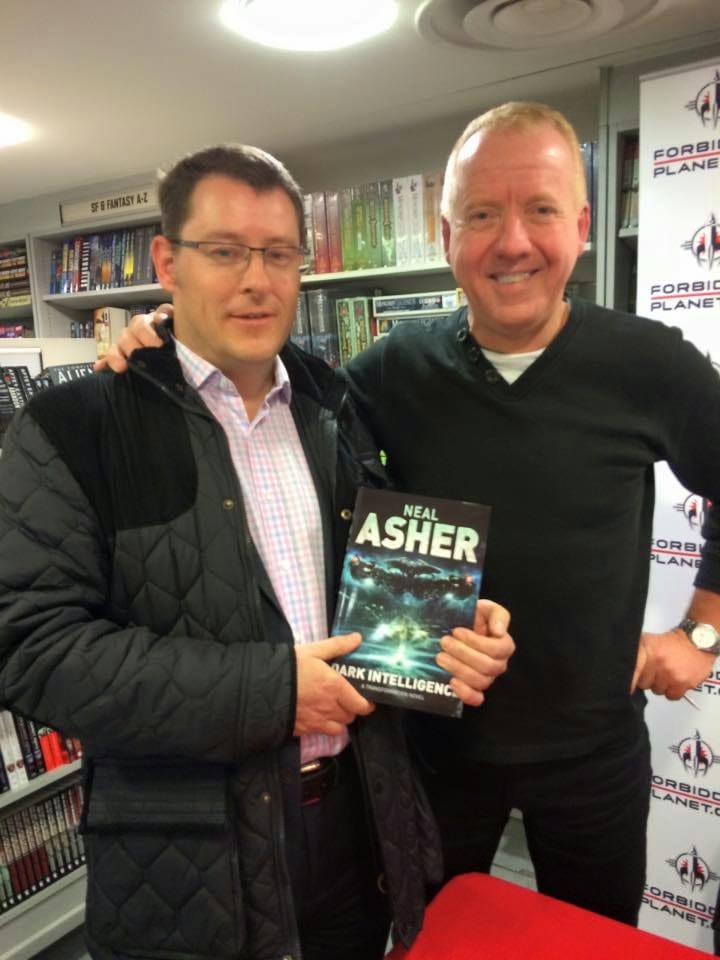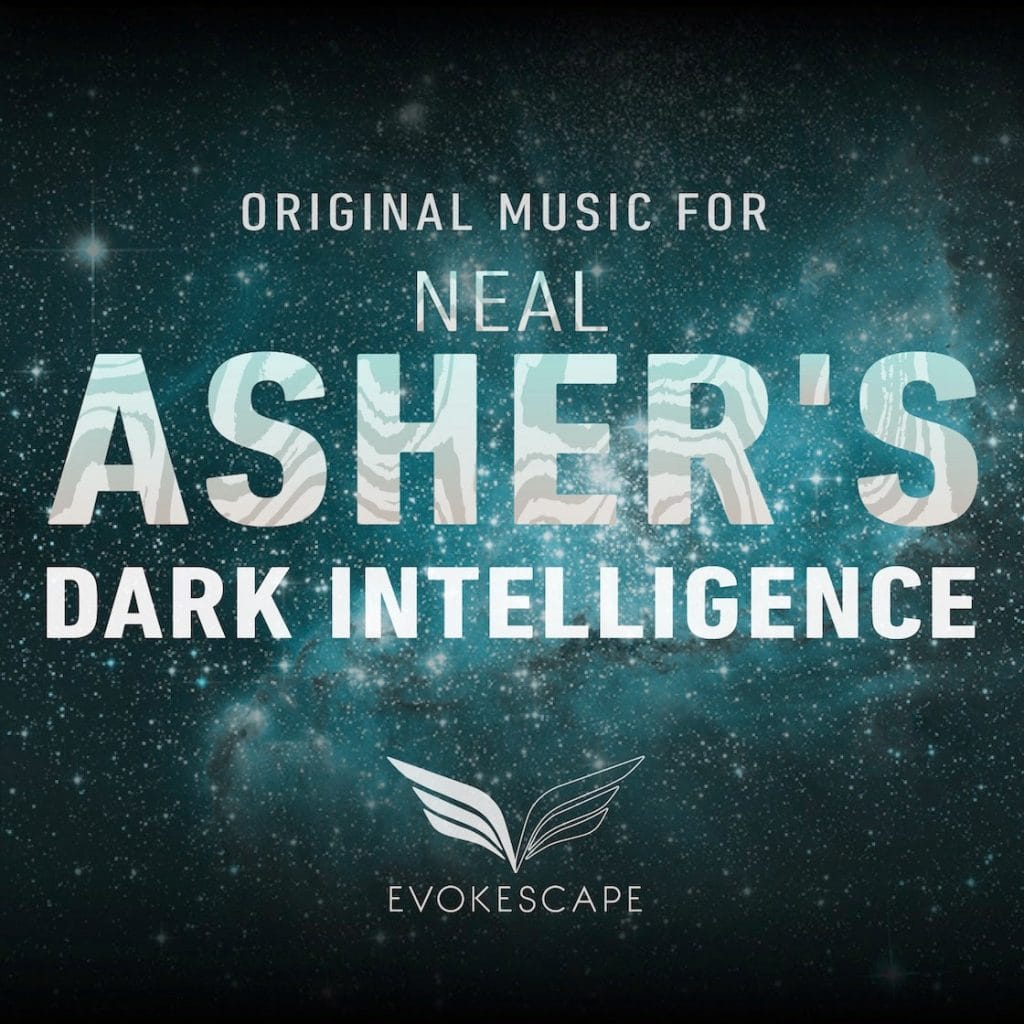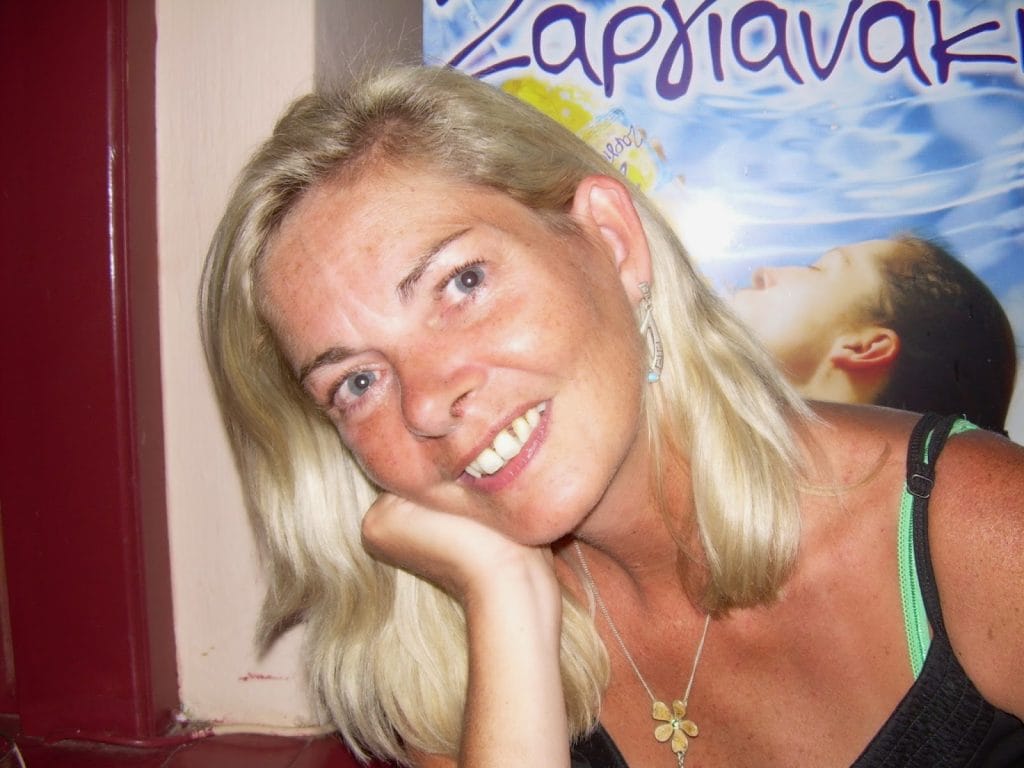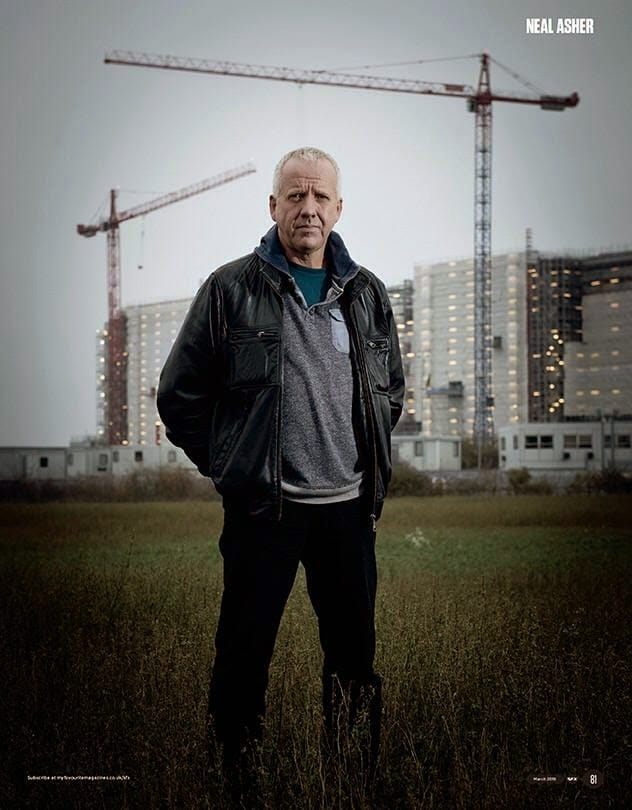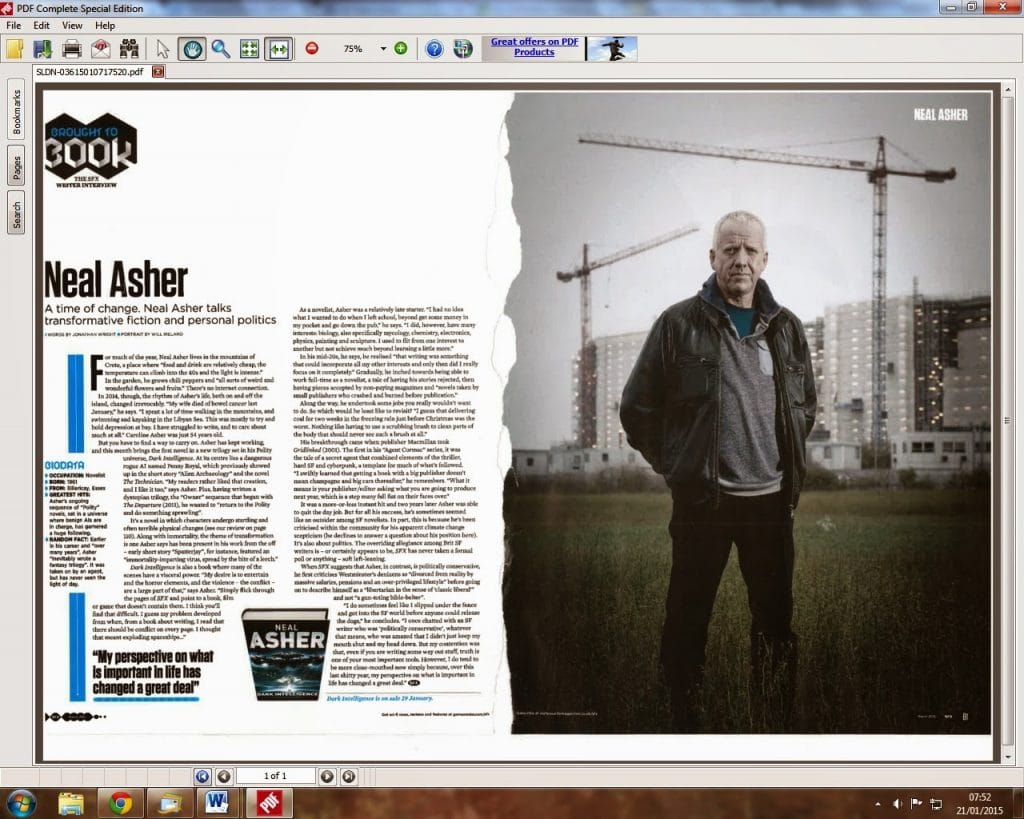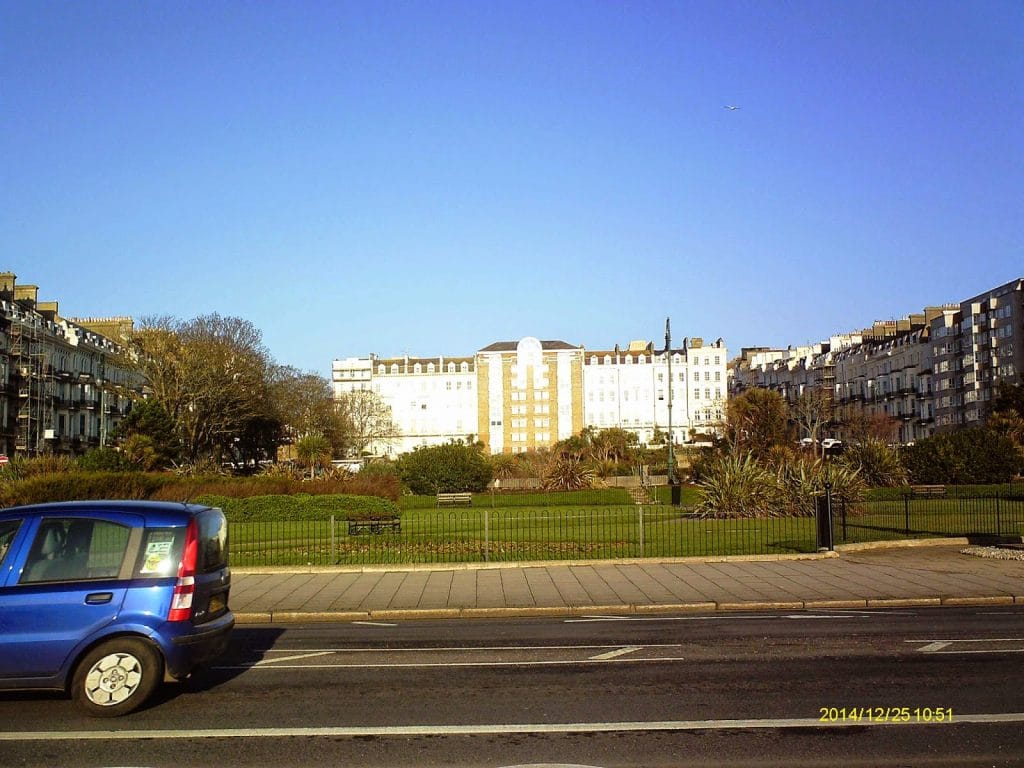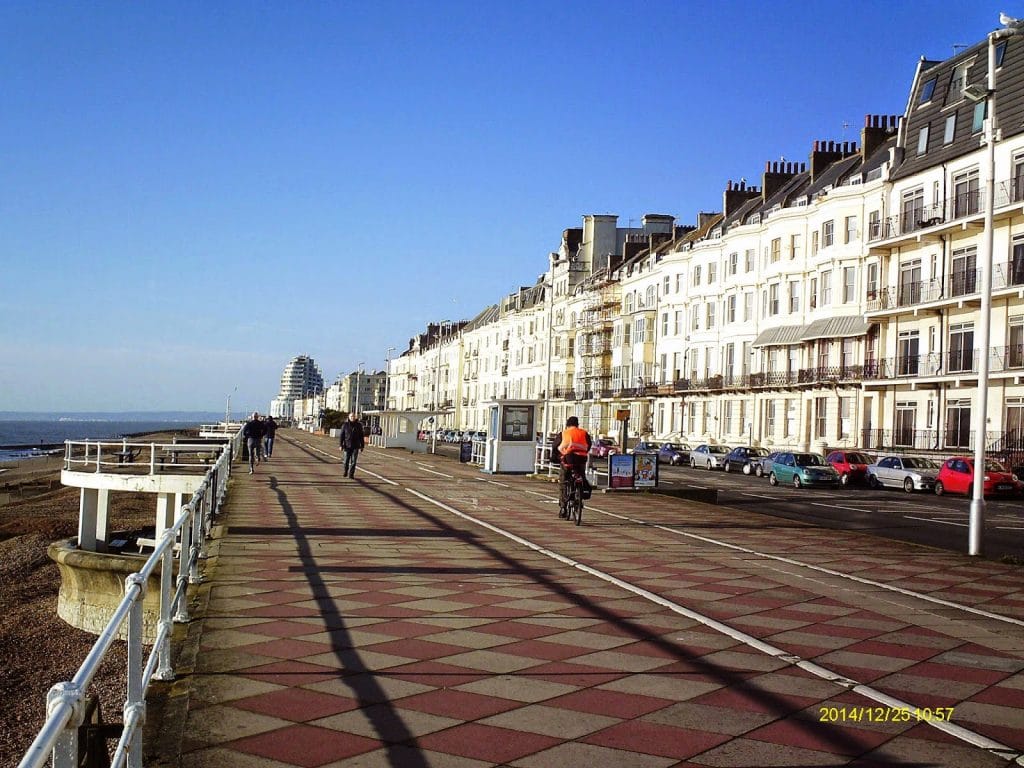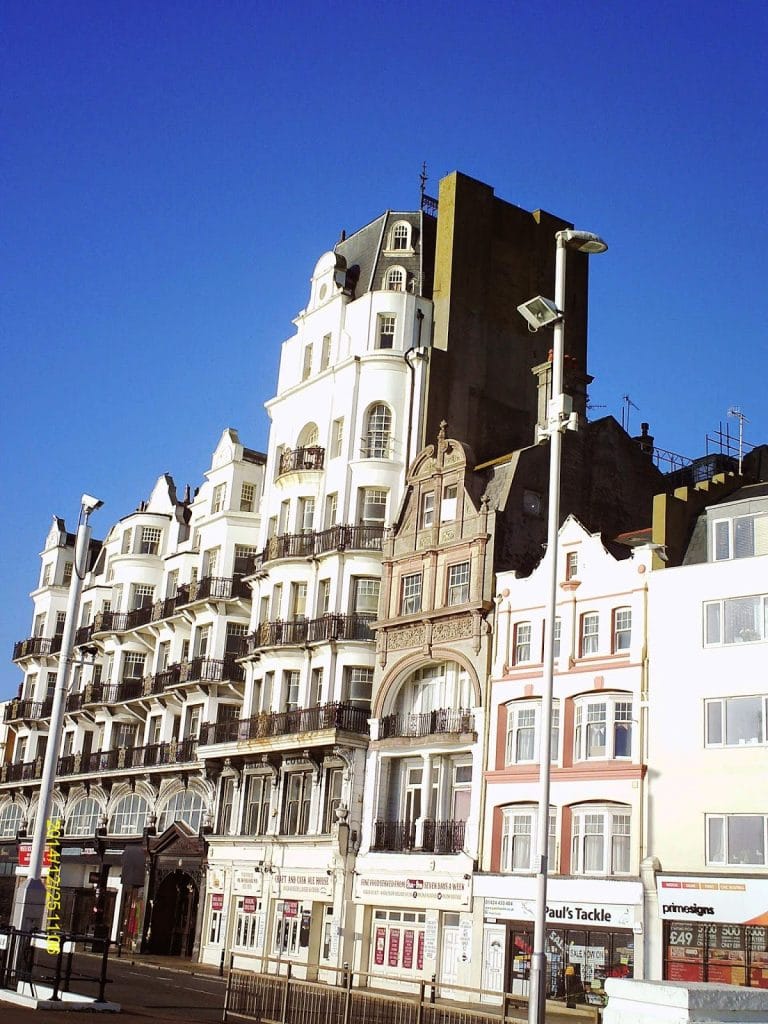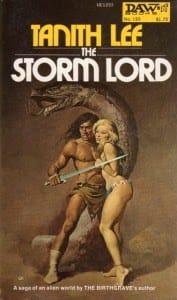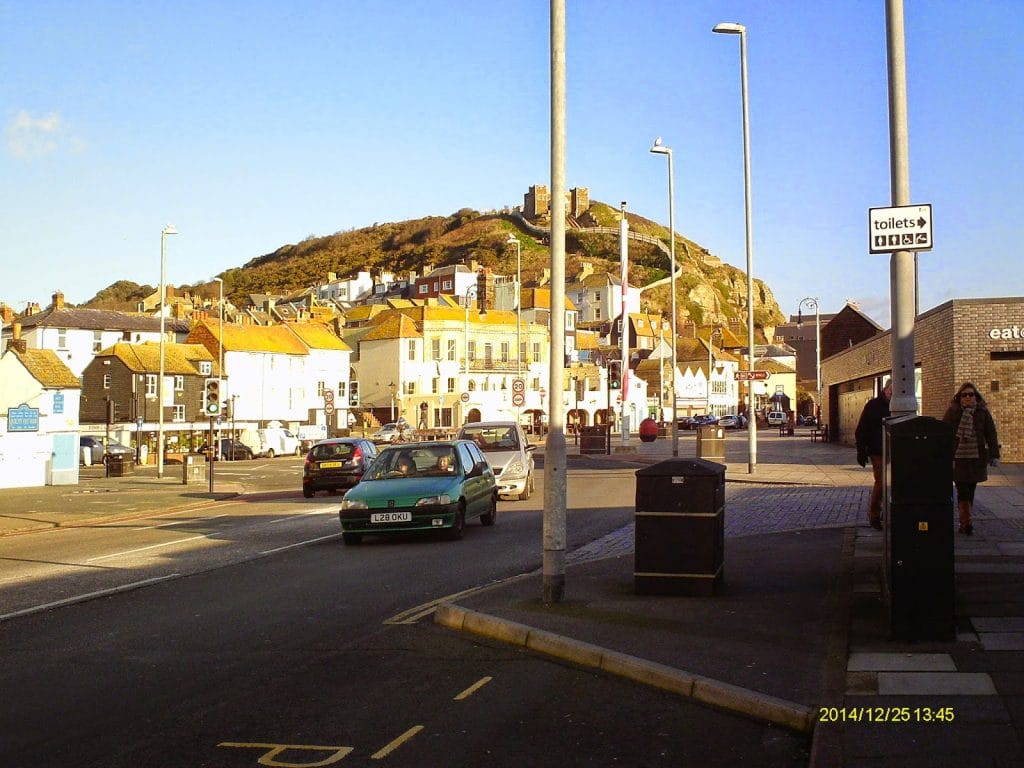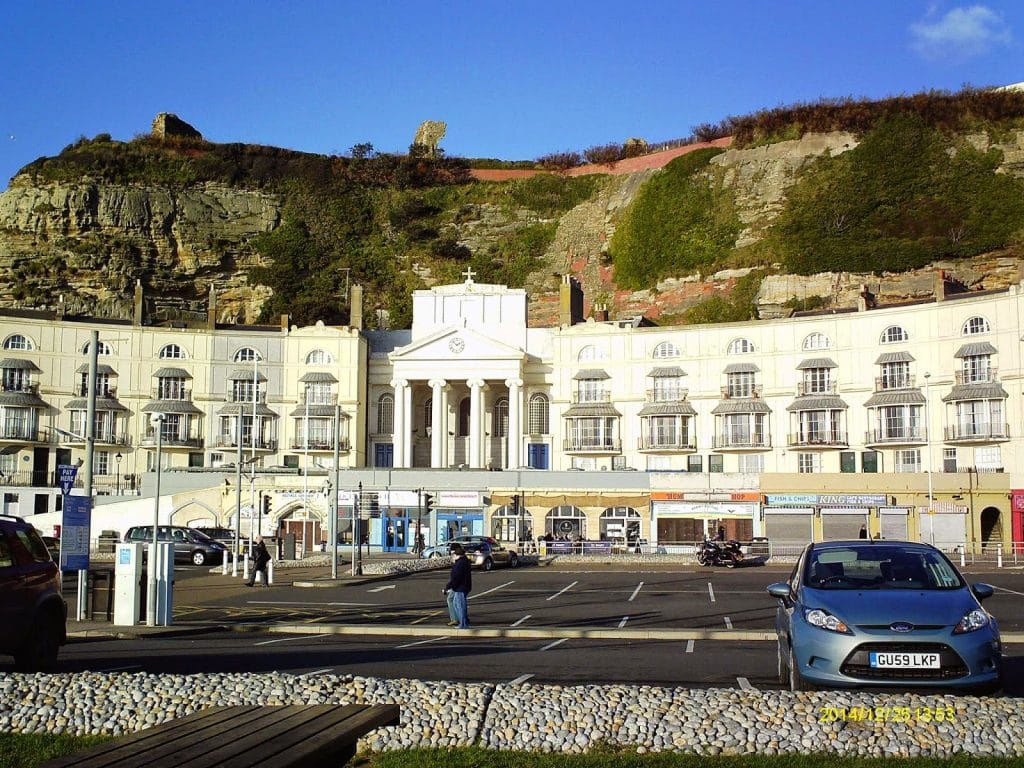Freezing author poses in a field outside Bradwell Power Station.
When the
photographer Will Ireland turned up at Althorne railway station I thought why not head down to the River Crouch? There’s some nice enough scenery down there that could be used as a backdrop. However I was forgetting that I was not in Crete where car parking is easy, but in England where someone wants money or some busybody complains. We ended up at the power station because, well, what kind of backdrop do you have for an SF writer? After posing in a field for a while I was reminded of that phrase (I think), ‘The most dangerous industry in Britain,’ from The Edge of Darkness when security guards came out to see what we were doing and take down details. Apparently they had decided not to release the dogs. Mr Ireland helpfully suggested that they did, while he sat in my car and took pictures of them chasing and pulling down the author.
This photograph shoot was all to accompany an interview that’s appeared in this month’s
issue of SFX. Apparently there’s a not so good review of Dark Intelligence in there too but I’m not particularly bothered about that. Fan opinions are what count and I’ve already seen some reaction prior to this…
Anyway, since the interview was just sampled I thought it worthwhile publishing the full text here:
SFX Interview
SFX: The new book, where did it spring from? (Without quite wishing to ask where do you get your ideas from..)
Neal: In a way my readers are a little bit responsible for that. What has happened here is similar to what happened in my 5 book Cormac series. In the first book, Gridlinked, I wrote about a character called Mr Crane – a rather large android made of brass – and the readers came back at me about that saying just how much they enjoyed him. The third book of the series I wrapped around Mr Crane. It was called Brass Man. But it was also my choice because I’m a fan at heart and really enjoyed writing about Mr Crane too. In Dark Intelligence I’ve revisited another character who first appeared in a short story called Alien Archaeology in Asimov’s and then in an off-shoot book from the Cormac series called The Technician. This ‘character’ is the blacklist AI Penny Royal. My readers rather liked that creation, and I like it too. Also, after writing a dystopia trilogy set in the near future of Earth, I felt the need to return to the Polity and do something sprawling. The ideas? They turn up at the keyboard as I write.
SFX: A key theme seems to be transformation, and the effect of physical transformation on the psyche. Were you always consciously exploring that theme, or did it develop through the writing?
Neal: The theme of transformation has developed through the writing but has also been there right from the start. It was in some of my earliest short stories, for example the immortality imparting virus, spread by the bite of a leech, in a short story called ‘Spatterjay’, which formed the basis of my trilogy beginning with The Skinner. Immortality is another constant theme in my books – physical immortality through medical technology and through the recording and backing up of minds. Another of those stories concerned both ‘Always With You’ included a doctor mycelium inside the protagonist that kept him alive during a battle with one of the bad-ass aliens that appear in Dark Intelligence – the prador. I’ve been working with these from the start and thinking more and more on the second element you mention: the effect of transformation (and immortality) on the psyche. In The Skinner, for example, I looked at the ennui of immortality and that appears again in Dark Intelligence.
SFX: There are plenty of horror elements in the book, errm, just how nasty is your imagination? More seriously, is there a desire to shock? If so, why?
Neal: My desire is to entertain and the horror elements, and the violence – the conflict – are a large part of that. Simply flick through the pages of SFX and point to a book, film or game that doesn’t contain them. I think you’ll find that difficult. There’s a large element of the voyeur in all of us of course. I guess my problem developed from when from a book about writing I read that there should be conflict on every page. I thought that meant exploding spaceships.
SFX: How does the novel fit into the existing Polity timeline?
Neal: Dark Intelligence starts a little while after the events in The Technician. The latter book was a sort of off-shoot from the second book in the Cormac series, The Line of Polity, but set twenty years later. So Dark Intelligence, and the ensuing two books of this trilogy, are set just a little while after the Cormac series and some centuries before the Spatterjay series.
SFX: Going back, were you someone who always wanted to be a writer?
Neal: Like so many people I had no idea what I wanted to do when I left school, beyond get some money in my pocket and go down the pub. I did, however, have many interests: biology also specifically mycology, chemistry, electronics, physics, painting and sculpture. I used to flit from one interest to another but not achieve much beyond learning a little more – it was after I was at school, for example, that I learned how thermionic valves and then transistors work. I also read a great deal – mostly science fiction – and at school wrote my first short story, which the teacher complimented (thank you teacher), and as a result writing became another of my pursuits. Over many years I inevitably wrote a fantasy trilogy. Only when I was in my mid 20s did I realise that writing was something that could incorporate all my other interests and only then did I really focus on it completely.
SFX: Was there a breakthrough moment when you thought, yeah, I can do this?
Neal: For me there was no sudden break-through moment. I paused at every step up the hill. Years of nothing published at all then a short story in a magazine for which payment was a free copy of said magazine. More stories published, the odd novella, a couple of short story collections, even some money but not enough to make me think about giving up the day job. I had an agent once hawking that fantasy – no luck. I had novels taken by small publishers who crashed and burned before publication. Yes, when I got a phone call from my first editor at Macmillan that could be called a break-through, but I still didn’t give up the day job for a couple of years. I swiftly learned that getting a book with a big publisher doesn’t mean Champagne and big cars thereafter. What it means is your publisher/editor asking what you are going to produce next year, which is a step many fall flat on their faces over.
SFX: Of all the jobs you had pre-full-time writing, which would you least like to return to and why? And conversely, which would you happily do again?
Neal: I guess that delivering coal for two weeks in the freezing rain just before Christmas was the worst. Nothing like having to use a scrubbing brush to clean parts of the body that should never see such a brush at all. I think it’s also fair to say that I would hate to return to any of the highly physical jobs I did. Even though I keep active now I’m still aware that I am of the age when constant physical work starts causing problems: trapped nerves in the back, tendonitis, cranky knees. A job I would do again (but I think to say ‘happily’ is pushing it a bit) is one in engineering when I was operating milling machines and lathes and the like. But this would be the one when I was machining a wide variety of components and also programming and operating CNC machines. It wouldn’t be a similar job I had where the instruction might have been, ‘Neal, here are 2,000 aluminium blocks. I want you to bore a hole in each and slice the corner off.’
SFX: Crete: are you still spending large amounts of time on the island? What’s your life like there?
Neal: As a writer, who of course can do his job anywhere he can take a laptop, it has been good. I don’t have internet in my mountain house so I tended to get a lot more work done! I could do my 2,000 words a day, which is my target when doing the first draft of a book, then go swimming in the early afternoon. Food and drink are relatively cheap, the temperature can climb into the 40s and the light is intense. Mostly you live outdoors. I enjoy growing stuff in my garden there that I can’t grow very well here. Chillies being a particular favourite, but also all sorts of weird and wonderful flowers and fruits. Things are relaxed and life there can be idyllic. However, it only reaches the above stages after a lot of effort. Too many people move there on the basis of what they saw on holiday and that isn’t the life at all. It can been quite a frustrating and maddening culture shock. If you are not the kind of person who has interests it can be boring – going to the beach has its limitations for many, and many find their entertainment in a bottle. A lot make the move there then after a few years give up and go back to Britain.
However, it is difficult for me to say much about my life there now since it has changed radically this last year – my wife died of bowel cancer last January. This year I did spent a lot of time walking in the mountains, and swimming and kayaking in the Libyan Sea. This was mostly to try and hold depression at bay. I have struggled to write, and to care about much at all.
SFX: How has it changed since 2008 economic meltdown?
Neal: It depends where you go in Greece or in Crete. Generally it is not as bad as we see in the news where the impression is given of rioting all across Greece, when it is mainly just in Athens. However, in Sitia, where I get my shopping, there are apparently 120 families on the breadline. In Lidl there is a large basket by the exit where you can leave for them some of the food you’ve bought. In Makrigialos, where I go swimming – a tourist area with a lot more money about – change is not so evident. In fact the melt-down there is just a continuation of how things have been going downhill with the introduction of the Euro – tourists heading to other cheaper destinations, and businesses steadily going under. All Greeks are now being hit by new taxes as the government struggles to maintain its bloated bureaucracy while continuing to act as if ‘austerity’ is just for the public. There are property taxes now for people who are often described as property rich but dirt poor, and many simply cannot pay them. It seems that every few months we see a new tax – often abandoned when the government fails to collect it.
SFX: You’re, as far as I can tell, politically conservative (I know, but best shorthand I can find). Does that make you feel like an outsider in the context of SF contemporaries who mostly seem to me to be left-leaning?
Neal: In Britain the divisions between left and right are a joke. I look at the two main parties in Westminster, supposedly left and right, and they both look like Orwell’s pigs. They both consist of career politicians who are divorced from reality by massive salaries, pensions and an over-privileged lifestyle. The true division now, to me, lies between authoritarian and libertarian. I can be described by that much-abused word ‘libertarian’ but, before anyone assumes that means I’m a gun-toting bible-belter, I am a libertarian in the sense of “classic liberal”. To quote: “individual well-being, prosperity and social harmony are fostered by ‘as much liberty as possible’ and ‘as little government as necessary’”.
Yes, I do sometimes feel like I slipped under the fence and got into the SF world before anyone could release the dogs. I once chatted with an SF writer who was ‘politically conservative’ (whatever that means) who was amazed that I didn’t just keep my mouth shut and my head down. But my contention was that, even if you are writing some way out stuff, truth is one of your most important tools. However, I do tend to be more close-mouthed now simply because, over this last shitty year, my perspective on what is important in life has changed a great deal.
